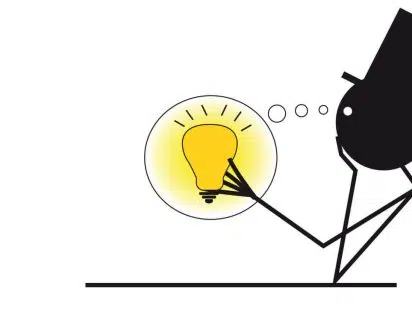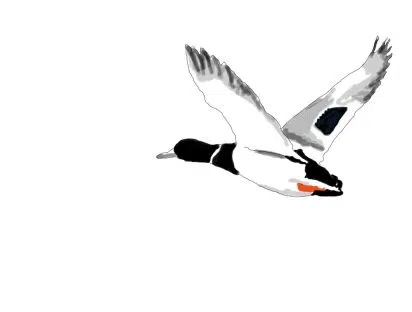 In the context of the constraints imposed by the Covid-19 health crisis, there are comments on the Internet, including the following question: “Can I be forced to wear a mask against my will?” The justification for this questioning does not concern us here. What matters to us is that it might be rational to act against one’s will, in this case to wear the mask. We shall deal more specifically with the following question: can it be rational to wear a mask, even if it appears contrary to the best judgment of the person concerned?
In the context of the constraints imposed by the Covid-19 health crisis, there are comments on the Internet, including the following question: “Can I be forced to wear a mask against my will?” The justification for this questioning does not concern us here. What matters to us is that it might be rational to act against one’s will, in this case to wear the mask. We shall deal more specifically with the following question: can it be rational to wear a mask, even if it appears contrary to the best judgment of the person concerned?
Acting against one’s best judgment
A word, to begin with, on the distinction we have just mentioned, between acting against one’s will and acting against one’s best judgment. One can wear a mask against one’s will, in the sense that one does not want to, but wear it in accordance with one’s best judgement, which includes the belief that one must respect the obligation to wear it. In what follows, we deal specifically with the case of an action taken against one’s best judgement – a case which, in a technical sense, falls under the concept of weakness of will or akrasia. Let us take the example of Tom, an imaginary character. His attitude towards the wearing of masks, which in many circumstances is mandatory because of the Covid-19 epidemic, can be described as follows:
(i) Tom feels that, all things considered, it is better not to wear a mask;
(ii) Tom believes that he is free not to wear it in certain circumstances, regardless of whether or not it is mandatory to wear it (in particular, he believes that in his company or with friends he will not in fact be coerced into wearing it);
(iii) Tom believes that if he did not wear a mask and was told that his attitude is irrational (because it is contrary to the general welfare, violates the rules laid down by public authorities, sets a bad example, etc.), he would reply that his choice is rational;
(iv) however, knowingly and freely, Tom wears a mask, at least in situations where the wearing of the mask is required.
Tom is therefore acting against his best judgment (condition i), without coercion (condition ii) and without complying with what he believes to be rational conduct (condition iii).
Doubts about the possibility (and rationality) of action contrary to best judgement
At first glance, it seems unlikely that an attitude such as Tom’s could exist. It could be given more of a right to exist if the mask were replaced with chocolate. With a change in some of the features of conditions (ii) and (iii), it would be understandable that Tom could eat chocolate although, after deliberation and consideration of all the reasons relevant to his situation, he thought it preferable not to eat it.
Thus, it would be explained that if Tom knowingly and freely ate chocolate, it was because his desire overrode his judgment, or, at the time of the action, he devalued the negative effects of deprivation in favour of immediate pleasure, or that he has postponed the moment when he will implement his judgement, or that, faced with the situation (the visual and olfactory perception of the chocolate bar), his perception, in fact, has been somehow absorbed by the chocolate bar, somewhat in the way that it is sometimes prey to illusions.
But it seems difficult to transpose such explanations to Tom’s case. Let’s analyse his attitude more precisely by imagining this dialogue with one of his friends, named Sally:
– Well, well, well. Are you wearing a mask now? I thought you were against it? Have you changed your mind?
– I haven’t changed my judgement, Tom replies.
– Ah! Then why are you wearing it?
– I can’t give you a specific reason.
– Explain yourself.
– Well, if you want to know, I saw myself put on a mask this morning, and I’ve been wearing it ever since.
– Against your better judgement? Sally says, feeling a little worried.
– Yes.
– But, poor Tom, you’ve only changed your “best judgement,” Sally jokes. It happens. There’s no shame in changing your mind!
Tom remains silent.
Sally doesn’t like the joke any more and starts to philosophise:
– Why, Tom, that’s absurd! No one can choose to act against their best judgment after their deliberation, just as no one can advise others to act against their best judgment!
An explanation
Sally doesn’t understand Tom’s statement: “I can’t give you a specific reason. I saw myself put on a mask this morning, and I’ve been wearing it ever since.” She finds her friend’s inability to formulate a reason – a reason for acting against his best judgment – unintelligible. And if asked if Tom’s action were rational, she would probably answer no, or ask for more information.
Philosopher Nomy Arpaly could help Sally understand under what condition Tom’s seemingly irrational action could be judged rational, both by an outside observer and by Tom himself. For, according to Arpaly, there are cases in which it is more rational to act against one’s better judgement than in agreement with it.
Suppose Tom has a false belief (for example, about the dangers or modes of transmission of covid-19) which leads him to form the belief that there is no point in wearing a mask. If one considers that one should desire what one believes, Tom should not wear a mask. The problem is that he is wearing one.
There is a gap between belief and desire. Suppose Tom is not motivated by his belief (a belief that is false, but which he believes to be true) and that this lack of motivation explains why he wears a mask. In this case, will his action be judged irrational?
The answer will probably be that his action is not irrational, but rational. If Tom could not be motivated by his belief, one will think that, at the time of the choice (to put on a mask or not), he had the intuition that it was false and that it should not lead to an action.
His lack of motivation somehow restores the rationality of the action of wearing the mask. It restores not only the rationality of his action, but also (which, according to a certain definition of rationality, amounts to the same thing) the coherence within the set of his beliefs and desires.
The argument is a delicate one. It suggests that if Tom failed to act on his false belief (which led to his best judgement), it was because he believed it was false, at least on an implicit level. Believing both one thing and its opposite, or believing something on an implicit or pre-conscious level, singularly complicates the case.
But Nomy Arpaly (and other philosophers) uses this type of argument. In her 2000 article, she illustrates several imaginary cases. Regarding one of them – a student whose best judgment was that he lived like a hermit to prepare for his exams, and who ultimately acted against his best judgment – she notes that the student acted for reasons that he had ignored during his deliberations. The deliberation was flawed, and this flaw was expressed, at the time of choice, by insufficient motivation to act in accordance with his belief that living as a hermit was the best way to pass his exams.
To give credence to this argument, it is not surprising that Tom said to Sally, “I saw myself put on a mask this morning.” He may have been acting on impulse, not knowing that he was acting for a good reason (the belief that wearing a mask is beneficial). Perhaps there were warning signs – a mood, a state of mind, sentiments – that revealed themselves at the time of the choice.
When the time came, he acted for a reason (a good reason) without deliberating. Strange, no doubt, but it is one of the interests of the weakness of will to incite reflection on this kind of case. And to arouse the idea that it can be rational to wear a mask against one’s will.
Alain Anquetil
(1) N. Arpaly, “On acting rationally against one’s best judgment,” Ethics, 110, 2000, p. 488-513.




